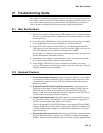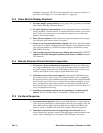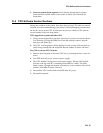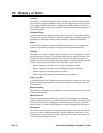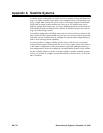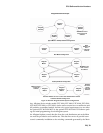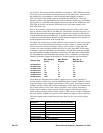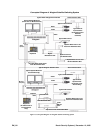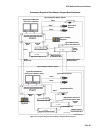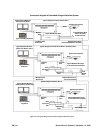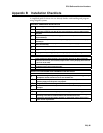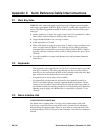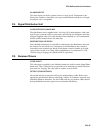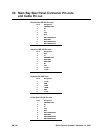CPU Software Version Numbers
EN | 81
The Main site system must be programmed via the MCS LTC 8059/00 or the
LTC 8850/00 GUI to identify camera trunk line inputs as well as remote satellite
cameras. All systems must be configured with no duplicate camera numbers any-
where in the system. The installer should verify that the camera numbers pro-
grammed into the Start-up Camera field of the Monitor Table are suitable for
viewing by respective operators. If there are Lockouts programmed into the system,
specifying a neutral camera would prevent the situation where a restricted camera
could be switched to a restricted operator's monitor when their trunk line is stolen.
For this feature to operate properly, the start-up camera numbers must be locally
connected cameras or a local unused input (i.e., the raster generator will be dis-
played when called-up).
In addition, it is recommended to program Lockouts for all system keyboards so
that they do not have access to unused monitor outputs. This prevents operators
from inadvertently selecting a satellite camera on a non-existent monitor which will
result in a trunk link becoming used up, possibly making less trunk lines available
for valid selections.
Keyboard User Function 41 (See Chapter 14, “User Information,” on page 38) offers
additional programming options if a multi-level cascaded Allegiant satellite system
configuration is being used.
Any alarm inputs to the Main site configured to activate satellite cameras operate
normally except when limited by the number of available trunk lines. The software
automatically determines trunk usage, depending on the priority level of operators
currently viewing satellite cameras.
Alarm inputs applied at a satellite site will NOT activate alarm video at the Main
site. If the application requires alarms located at a satellite to activate video at the
Main site, the Main site's LTC 8540/00 Alarm Interface unit must be remotely
located. Multiple LTC 8540/00 Alarm Interfaces may be remoted via the LTC 8713
alarm port expander accessory, located at the Main switcher site in LTC 8800 and
LTC 8900 systems. Up to two (2) LTC 8540/00 alarm interfaces with a LTC 8713
alarm port expander can be used in a LTC 8600 system. One LTC 8540/00 can be
used in LTC 8500 systems. Since the LTC 8100, LTC 8200, and LTC 8300 Series
contain an integral alarm interface, the remote alarm interface application does not
apply.
A unique time and date synchronizing feature provided in the Time Event Table of
the MCS or the GUI Software may be programmed into the Main site switcher.
This permits periodic synchronizing of the time and date to all remote switchers in
the system based on the Main site's clock.
A conceptual diagram of a satellite switching system is follows:



